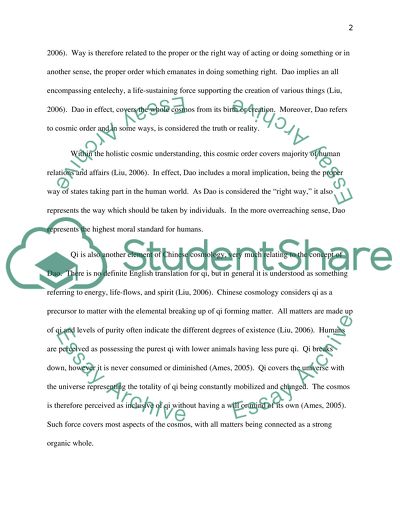Cite this document
(“Discuss Chinese cosmology and its meanings and implications in early Essay”, n.d.)
Retrieved from https://studentshare.org/history/1476430-discuss-chinese-cosmology-and-its-meanings-and
Retrieved from https://studentshare.org/history/1476430-discuss-chinese-cosmology-and-its-meanings-and
(Discuss Chinese Cosmology and Its Meanings and Implications in Early Essay)
https://studentshare.org/history/1476430-discuss-chinese-cosmology-and-its-meanings-and.
https://studentshare.org/history/1476430-discuss-chinese-cosmology-and-its-meanings-and.
“Discuss Chinese Cosmology and Its Meanings and Implications in Early Essay”, n.d. https://studentshare.org/history/1476430-discuss-chinese-cosmology-and-its-meanings-and.


